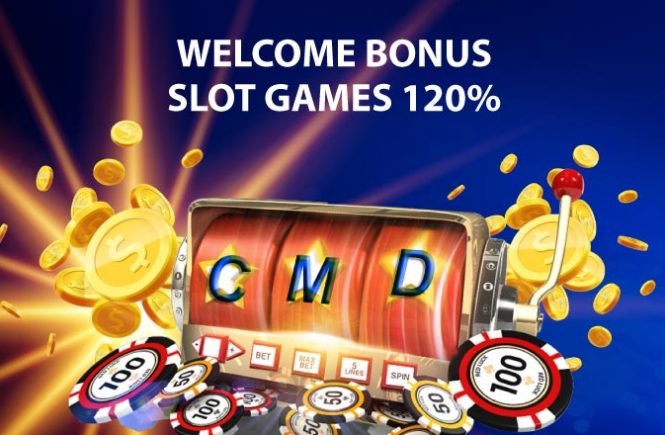The match is a world on itself. There aren’t any windows, no clockbut you can find flashing lights, and also the din of clacking coins and also whirring slot machines. Over and above the slots, the figures have been mesmerized at the crap table. Fascination with poker hit new heights with televised Texas Hold’Em tournaments. For most players, that will be delight, recreation, a enjoyable diversion or escape from the ordinary and also a chance to win against the odds. For others, an estimated three% of the mature people, it has an addiction, an endless rollercoaster of excitement and despair.
A pervasive characteristic of dependency of any kind is the replicated behaviours have contributed to a range of negative outcomes. This is putting it somewhat in the case of pathological gambling, because some one in the grips of compulsive gambling normally suffers severe blows to finances and connections before seeking help. His or her life could be in shambles.
Usually the compulsive gambler’s refusal leads him to believe that another round will conserve your day. Obviously, in the event the numbers come up correctly, the cash or credit obtained is then”invested” back again. Gambling addiction is hardly a recent evolution, but the dawn of electronic poker and the break neck speed of today’s slot machines, in addition to Internet gambling have sped up enough time that it can take to gamble for pleasure when it slips into problematic, afterward compulsive behavior.
Pathological gaming, such as other addictions, is both a biological and a behavioural disease Slot game malaysia. Whilst we usually do not know every one of the factors leading to gaming addiction, they often times include societal, family members and mental things. We all do understand that mental performance neuropathways involving the brain mechanisms are affected in somebody’s understanding of experiences that are rewarding. The emotional escape an person finds in gaming may possibly come to be entrenched.
We have observed from 15-20 percent of individuals that suffer from cross-addictive ailments, including alcoholism or drug addiction with problem gaming. Some quotes say that 3-5 per cent of people that have substance abuse or dependence also have satisfied the diagnostic criteria for pathological gambling at any time within their own lives. The SOGS (South Oaks Gambling display ) could be your accepted psychosocial diagnostic device to identify a gambling problem and its particular progression.
Both gambling and substance dependency have been progressive disorders, and can be seen as an inability to restrain instincts (touse or to gamble) denial, anxiety mood swings and melancholy and also the need for instant gratification. Gambling, like substance dependency, provides sweet highs, and which are followed by emotional sidewalks and generally remorse and shame. A big gap in betting versus chemical dependency is the fact that the alcoholic or drug addict doesn’t believe the compound could be the response to retrieval and to his own problems, even while the gambler believes the major Win will be the solution to each of his problems.
Betting habits can also cause signs or symptoms such as black outs and rest ailments and despair. Divorce, work and relationship problems, even arrests are several crushing consequences of compulsive gambling. A person’s overall health is often disregarded, including health conditions which have been disregarded. Betting habit is definitely a household disease, generating a dysfunctional family system that revolves around someone’s addiction. Kiddies could possibly be stranded in addition to physically failed. Kids are changed long term too, together with scientific studies estimating 3-5 to fifty percentage of children of players finally experiencing gambling problems of the own.
It is important that when chemical and gambling dependence cooccur, they’ve been handled at the same time. Like chemical addiction, gaming dependency is addressed at holistic remedy based on the Twelve Step Philosophy. Treatment is individualized and carries into account issues of sex and age.
Gambling: Can it be the amount of money?
Some professionals, like Dr. Henry Lesieur, St. John’s college, NY, that long-time the SOGS screening assessment, still find itn’t about the currency, though money turns into a real problem. Hunting action seems to be the significant impetus for all those. Being in activity could be just like this amount of taking cocaine. “Chasing losses” is duration usage by habitual bettors to describe attempting to recover the gaming losses . The action gambler likes to gamble on site, at a casino, race track, or other”dwell” place. Usually they are discovered by casinos since”high rollers” and received comped rooms and meals. Others, though, don’t gamble for action thus much as numb their emotions together with compulsive gaming, so it becomes the greatest, albeit temporary getaway.
Age and sex as factors
A study by University of Connecticut Health Center psychiatrists published in 2002 assessed gamblers looking for remedy and found considerable differences by age and gender in pathological gamblers. Middle aged (aged 36-55) and older bettors tended to comprise additional women, in 45-55 percentage, than younger gamblers (aged 18-35) at 2-3 percent. Middle aged and older women didn’t begin gaming regularly before the age of 55, although older men reported a habit of lifelong gambling. Perhaps surprisingly, the women also wagered biggest amounts at the entire month before treatment. Younger players reported many issues with chemical abuse, social and legal problems, while elderly gamblers found more employment-related troubles.
There’s hope for retrieval
Pathological gamblers, for example those that have problems with dependence can and do recover. Cognitive Behavior Therapy, together with Rational Emotive Behavioral treatment, may change unhealthy behaviours and thoughts, for example false beliefs, rationalizations, and real life emotions. Dialectical Behavioral Therapy also helps people to meet life on its own terms in place of escape painful emotions with cerebral addictions.
A holistic treatment program which addresses the origin issues of dependency along with some co-occurring disorders is a powerful approach that treats the entire person. Ongoing care could possibly be needed, particularly to impulse-control, in addition to ongoing participation in support groups like Gamblers Anonymous. The recovering gambler may also need expert financial counsel, and family therapy will help develop a supportive, balanced family structure for continued restoration.





